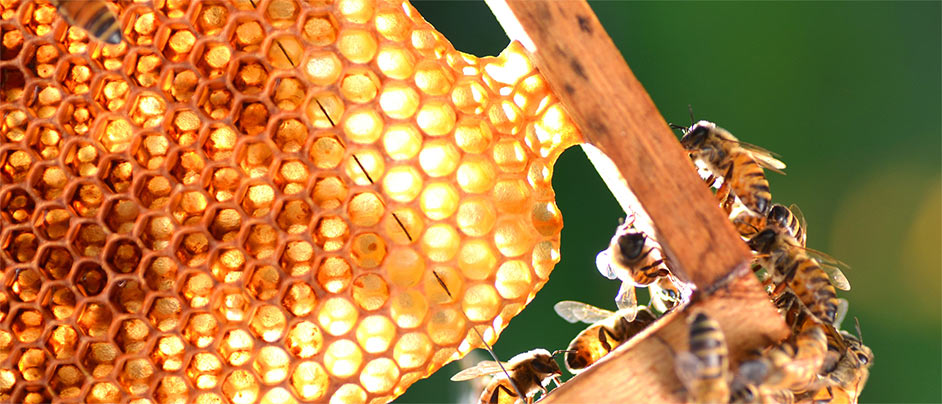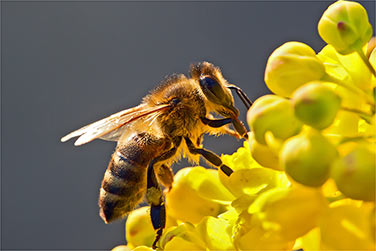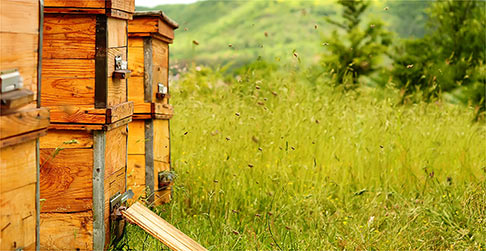Save The Bees: The Importance Of Nature’s Sweet Little Miracle Workers
Bees are having a moment right now. A big, buzzing moment. A quick Google search of “save the bees” brings up roughly 100,000,000 results.
Honestly, it’s about time.
Long gone are the days of our youth when we took cover and screamed for our lives at the subtle sound of a buzz. Bees aren’t the scary, stinging creatures we were once taught to believe. In fact, they’re the complete opposite. If it weren’t for bees, life as we know it wouldn’t be nearly so colorful, or even close to as sweet.
What do bees do?
Honey, we’re happy you asked!
Beyond making the sweet, golden nectar they’re most often associated with, honey bees play an essential role in the global ecosystem through pollination. Think back to your 2nd grade science class, when you learned about the life cycle of plants. For plants to reproduce, pollination is required.
Bees are nature’s best pollinators. It’s very impressive, actually – a single colony can pollinate more than 300 million flowers each day!
But it’s not just pretty, colorful flowers that you can thank honey bees for. The United States Department of Agriculture estimates that pollinators, most often honey bees, are responsible for one in every three bites of food we take, and increase our nation’s crop values each year by more than $15 billion.
So, what does that mean?
Aside from the obvious economic implications, without bees, we wouldn’t eat. At least, not the way humans have done so for hundreds of centuries.
Let’s break it down.
1/3 of the world’s food production depends on pollination from bees. From fruits, veggies, nuts, and seeds, honey bees are sweet little furry miracle workers who buzz happily from plant to plant, spreading around the “good stuff” AKA pollen.
Through pollination, bees also protect and maintain an ideal ecosystem balance, keeping our plant population diverse, healthy, thriving, and strong.
Simply put – without bees, our global agriculture industry would collapse.
What’s killing the bees?
In the 1990s, beekeepers around the world began to notice a “mysterious and sudden disappearance” of bees. Interestingly, the world’s #1 selling herbicide, glyphosate, was introduced into agriculture in 1974.
Coincidence? Probably not.
A recent study from Proceedings of the National Academy of Sciences proved what people already suspected: glyphosate, the world’s most widely sprayed herbicide, kills honey bees.
And unfortunately – it’s not just glyphosate we have to worry about. Scientists have detected more than 150 different pesticide residues in some samples of bee pollen. Bees and other pollinators are continuously exposed to a deadly cocktail of chemicals that weaken their immune systems and make them more susceptible to disease.
And the problem is not going away.
According to Bee Informed Partnership’s latest survey, U.S. beekeepers lost nearly 40% of their honey bee colonies during the winter of 2018/2019, the greatest reported loss since the partnership began collecting data in 2006.
In addition to pesticides, scientists also know that a combination of drought, habitat destruction, air pollution, and global warming are also contributing to the global bee crisis.
How can we save the bees?
If you care about honey bees like we do, these facts aren’t easy to swallow.
Thankfully, we’re not the only people concerned. There are a growing number of organizations dedicated to the preservation of honey bees around the world, including The Bee Informed Partnership, Honeybee Conservancy, and Save The Bees – a European Greenpeace project.
According to Greenpeace, there are 3 major steps we can take to save the future of bees:
- Ban the seven most dangerous pesticides.
- Protect pollinator health by preserving wild habitats.
- Restore ecological agriculture.
Unfortunately, these things are easier said than done, especially without significant government support.
However, there’s still hope – when good people like you start to advocate on behalf of bees, vote for policymakers who back sustainable farming practices, and support companies that stay away from harmful manufacturing processes, we can start to create meaningful change.
What is Madhava doing to help?
Our company was born from one honey enthusiast and a swarm of hardworking bees. Since we opened in 1973, we’ve been big bee supporters, and we’ll do whatever it takes to help our buzzing colonies survive.
In an effort to protect our best “employ-bees,” we have partnered with the Clean Label Project to eliminate more than 130 harmful environmental and industrial contaminants and toxins from our products and manufacturing process.
By working with this growing organization, we hope to encourage other like-minded companies to do their part to help save the bees, and in the process, also our planet.
Where can I buy Madhava products?
You can read more about the Madhava origins here.
If you’re interested in trying our sweet, organic honey products, free from more than 130 harmful environmental and industrial contaminants and toxins, you can purchase from these retail locations:
With a little passion and a whole lot of help, we can save nature’s sweet little miracle workers.
If you’re interested in getting involved, contact Madhava today.



 BACK
BACK